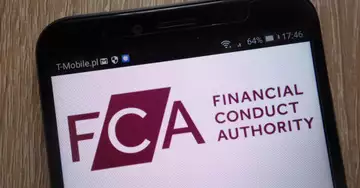The UK's Financial Conduct Authority (FCA) is hosting a two-day CryptoSprint, a forum for financial regulators to discuss oversight of the industry with experts and attendees.
Many in the crypto community hope the event, which will take place Tuesday and Wednesday, will help make the U.K. more crypto-friendly, in line with announced policies from the Treasury, the government's financial arm. The FCA said last month that it had been more critical of cryptocurrencies in the past.
The FCA sprints allow the financial regulator to focus on a specific topic. It invites experts from the relevant industry to answer questions about the impact of regulating a particular way, said Christopher Kiew-Smith, chief compliance officer at Zodia, a crypto custody provider. Kiew-Smith worked as a senior associate at the FCA from 2015 to 2017, according to his LinkedIn profile.
"We hope CryptoSprint will be the start of a process that will bring the regulator up to the pace that the government and the industry are aiming for," said Nick Jones, CEO of Zumo, a U.K. crypto wallet provider.
The FCA became the U.K.'s anti-money laundering and counter-terrorist financing agency in 2020 and requires crypto companies to register. A temporary registration regime (TRR) allowed them to continue operating while their applications were reviewed. To date, 34 companies have received full registration, and five companies remain registered under the TRR.
International crypto companies
Grayscale, a U.S.-based crypto asset management company, is considering doing business in the United Kingdom, CEO Michael Sonnenshein said in an interview. Grayscale shares a parent company, Digital Currency Group, with CoinDesk.
"They need new rules and regulations that can serve as a tailwind for job growth [as well as] product and service development," Sonnenshein said of the United Kingdom.
Kevin Yang, managing partner at Gate Ventures, the venture capital arm of crypto exchange Gate.io, told CoinDesk that they are "closely following the progress of crypto regulation" in the UK.
"We need to encourage innovation, right? On the other hand, we need to protect investors, so it's more about how to balance those two sides," Yang said.
New policy?
The crypto community is calling for a "collaborative, joined-up approach and more government departments to write new, fit-for-purpose regulations for the digital age," Ian Taylor, chief executive of CryptoUK, a trade association for the industry, said in an interview.
The United Kingdom has announced that it will work on a new crypto regulatory package and plans to regulate stablecoins. The UK already has a manual on how HM Revenue and Customs, the government's tax agency, will tax cryptocurrencies.
Custody
A key question that will be addressed at CryptoSprint is: what gaps need to be addressed in the existing regulatory framework for custody to protect consumers?
"It's a critical issue because the processes and procedures required are fundamentally different from those used for custody of financial products or physical assets," Sabrina Wilson, chief operating officer at Copper, a TRR-listed custody provider, said in a statement.
Custody providers offer storage and security services for cryptocurrencies.
The FCA will also look at how customers' ownership of crypto assets is evidenced and protected.
Something like the Financial Services Compensation Scheme to compensate customers of crypto companies that have gone out of business could give people more peace of mind, Zumo's Jones said.
Ideally, "there's no financial crime, no money laundering, and the company will probably still be around a year from now because the regulator is looking at whether there's enough money in the company to continue and whether there's enough money to compensate people," he said.
"The sector will not be able to really establish itself without these safeguards," Kene Ezeji-Okoye, co-founder of Millicent, a U.K.-based stablecoin provider, said in a statement, speaking of safeguards for consumers and against money laundering.
Information about crypto assets
Another issue the FCA will address is how information about crypto-asset issuance should be disclosed to investors. Retail investors who do not have access to financial advice are likely to need clearer information about the risks than institutional investors.
"The issuance stage is the most appropriate stage for disclosing information about the asset, as it helps inform users about whether or not they want to participate," Ryan Shea, a crypto economist at Trakx, a crypto index trading platform based in France with a UK office, said in a statement.
Updates should be provided when certain events occur that affect the token, Shea said.
Regulatory obligations
The FCA will also discuss where regulatory obligations for crypto asset models should be located.
Regulators need to strike a balance between capturing relevant activity that poses risk to consumers and enabling innovation, the FCA said on its website.
Most of the responsibility will fall on centralized entities that can be easily identified, Jones said. But it needs to be balanced. Excessive oversight of the crypto sector could lead to firms moving to other jurisdictions, Jones said.
The FCA will also need to find ways to regulate decentralized systems where there is no central player.
"Regulating a decentralized crypto-asset model is much more difficult than centralized asset models because they do not easily conform to the geographic boundaries of national regulators," Shea said in a statement.

